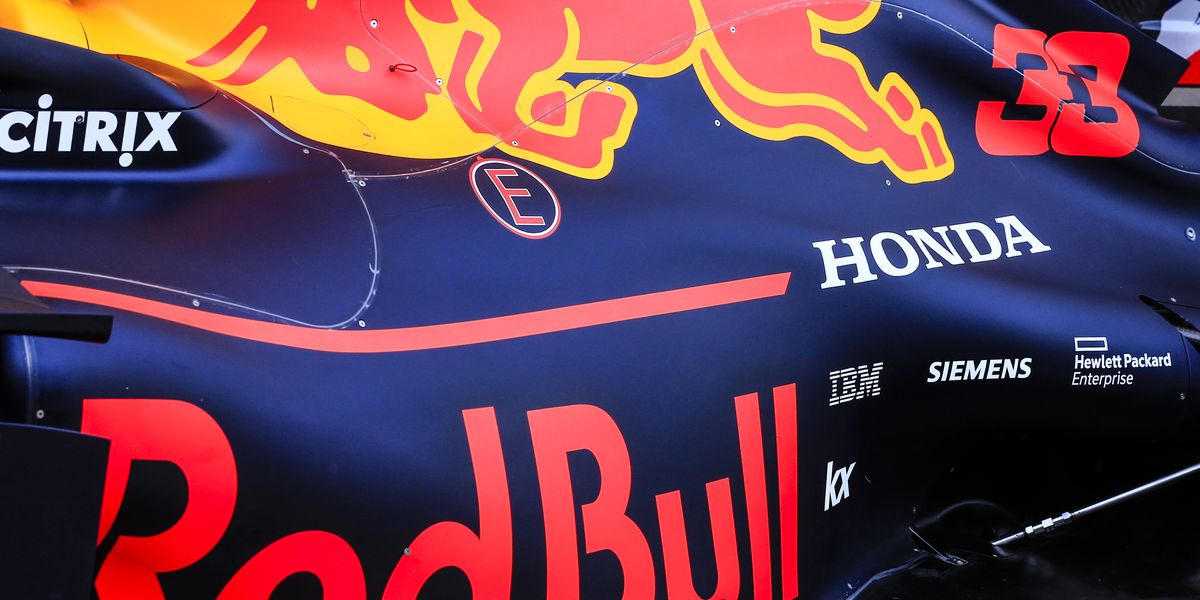
- The Red Bull engine division will work out of the Red Bull Technology Campus in Milton Keynes, UK
- Honda, which is leaving F1 following the 2021 season, will provide power unit technology to Red Bull Powertrains Limited beginning in 2022.
- The deal was sealed after F1 agreed to freeze an engine development until 2025.
Honda’s decision to exit Formula 1 as a power unit manufacturer at the end of the 2021 season, left Red Bull with a headache. The Austrian-based drink company’s two F1 teams—Red Bull and AlphaTauri—needed engines for 2022, and there was no interest at all in Red Bull going back to being a Renault engine customer.
The only obvious solution was for Red Bull to buy the Honda F1 power unit technology. In order to take such a risk, Red Bull wanted a freeze on engine development from 2022 to minimize the risks involved. Rival teams were not keen but when it was suggested that in exchange for a freeze starting in 2022, the FIA and Formula 1 would move the introduction of a new engine formula from 2026 to 2025.
This was attractive in many ways, and last week the teams voted in favor of the change. Thus the Red Bull-Honda deal has been completed and a new company called Red Bull Powertrains Limited has been established. This new division will operate from Red Bull Racing’s F1 Team base in Milton Keynes.
Helmut Marko
Joe PortlockGetty Images
“We have been discussing this topic with Honda for some time and following the FIA’s decision to freeze power unit development from 2022, we could at last reach an agreement regarding the continued use of Honda’s hybrid power units,” said Red Bull Motorsport Advisor, Dr Helmut Marko. “We are grateful for Honda’s collaboration in this regard and for helping to ensure that both Red Bull Racing and Scuderia AlphaTauri continue to have competitive power units. The establishment of Red Bull Powertrains Limited is a bold move by Red Bull but it is one we have made after careful and detailed consideration. We are aware of the huge commitment required but we believe the creation of this new company is the most competitive option for both teams.”
What will be interesting is to discover now is what arrangements have been made in terms of branding the engines. Rather than footing the bill themselves and getting precious little extra exposure, Red Bull would logically decide to sell the naming rights to its engines to someone else.
This was the case a few years back when Red Bull used Renault engines but was able to sell the engine to TAG-Heuer. That was convenient but made little sense from an industrial point of view because TAG-Heuer makes watches, rather than engines.
However, having acquired the Honda technology, Red Bull could now (if allowed) go to another automobile manufacturer and offer them a deal for the next few years. The engines will be called Hondas until the end of this year but a year from now there is no reason that they should not be called Alfa Romeos or Audis unless Honda has expressly forbidden that in the agreement.
When Honda decided to stop its F1 team at the end of 2008, the operation was sold to the team management, led by Ross Brawn. They rebranded the operation as Brawn Grand Prix, did a deal to use Mercedes-Benz engines and promptly won the World Championship. The team was then sold to Mercedes at the end of that year and was transformed into Mercedes F1 for 2010. Would Honda do the same again?
The first impression might be that it makes no sense but there is a solid argument that this could be a good idea because if the engines are successful under another name, it will still be known that they were designed by Honda.
The new Stellantis car company is currently looking at ways to revamp its sporting programs and must consider what to do with Alfa Romeo. The current sponsorship of Sauber is of little value because the team uses Ferrari engines and in any case the marketing value is limited because the cars are at the back of the field most of the time. A switch to branding the Red Bull engines makes perfect sense for the marque, as it would boost Alfa Romeo’s exposure as a winner in F1 with only a moderate investment, while also helping Red Bull recover the costs of whatever financial deal has been struck with Honda .
There is also the possibility of Red Bull agreeing to supply the engines to other teams, with different branding. Thus, for example, Aston Martin (which has strong links with Red Bull) might look at the idea of buying its engines from Red Bull and branding them as Aston Martin… Other might even consider such a move if other manufacturers showed interest.
Red Bull has yet to respond to questions about whether the engines can be branded differently in the future.






